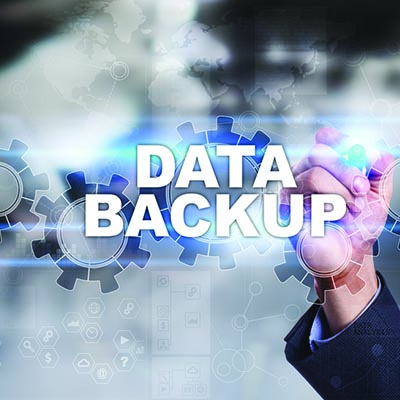Backup and disaster recovery (BDR) is actually a combination of two separate processes that work together. Let’s discuss the differences so you can make intelligent choices.
Preparing for a Data Backup
1. You need data handling policies and a scalable solution:
Clarify your policies regarding data backups, keeping in mind that you are planning for an increased amount of data in the future, so you need a scalable backup solution. Policies should include:
- • What data needs to be backed up, how often backups are taken, how backups are accessed, and which tools will be used to backup.
- • What data needs to be retained, for how long, and in what format.
- • What data needs to be destroyed, when, and how.
2. Get a data backup solution that fits your needs:
Your business needs a solution that is designed specifically for your needs, using best practices and common sense. Keep these criteria in mind when choosing a backup solution:
- • You need multiple backup copies. Use the 3-2-1 rule: three copies in all, stored in at least two different locations, with one remotely accessible.
- • Keep regulations and requirements particular to your industry in mind when planning your backup needs.
3. Make sure the backup solution passes the test:
- • This might seem obvious, but take the time to test your backup solution thoroughly. Don’t wait until disaster hits.
Designing Your Disaster Recovery Strategy
Without a solid backup strategy, your solution won’t be very helpful. Keep these topics in mind for your data backup and disaster recovery strategy:
1. Contact List: Who needs to know?
- • Prepare a list of who should be notified in the event of a disaster. Make sure you have a failsafe list of first, second, and third contacts.
- • Attach a list of staff responsibilities in the event of a disaster.
2. Staff Designations: Who is doing what?
- • Staff designated to take over responsibilities during a disaster should be aware of this and thoroughly prepared.
- • Failsafe: You should also have staff trained to step in should original staff be unavailable.
3. Emergency drills: Be ready!
Your entire team needs to review and practice your emergency drill processes to ensure that your team knows how to protect and recover crucial data in the event of a disaster.
Quikteks can help your business be prepared. Reach out to us at (973) 882-4644. We can help!

